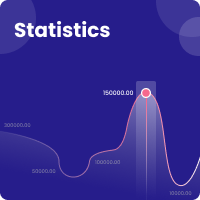Focus group: a strategy to assess intercultural skills
Abstract
Nowadays, human talent demanded by the modern world needs to have a vision and the ability to interact with the environment and the global society. The pedagogical model of INSTITUTO TECNOLÓGICO METROPOLITANO (ITM) proposes to educate citizens for the contemporary society, not simply by responding to demands of the industry or government policies but by educating talents with different knowledge about STI (Science, Technology and Innovation). However, all of them have soft skills to formulate transforming proposals in international scenarios, which is a curricular innovation in higher education. In 2013, ITM started a project to strengthen the internationalization processes of four academic programs (one per faculty). That initiative revealed the need to assess the intercultural competences of the academic community. Due to its importance and projections, the Telecommunications Engineering program was the pilot. The adopted method was based on the Deming Cycle, and a Focal Group technique was applied. Such method is a valid instrument to collect qualitative information on perceptions—in this case, related to experiences, memories and perspectives—of intercultural competences from any academic unit at a higher education institution. The instrument was focused on three aspects: intercultural sensibility, interpersonal relationships and global vision. After the method was applied, the intercultural competences of the evaluated academic community were found to reach a good level of appropriation (76.7%), which was considered constant. For that reason, improvement actions should be planned and implemented in the instruments outlined in the program curriculum.
References
Aigneren, M. (2002). La técnica de recolección de información mediante los grupos focales. La Sociología en sus Escenarios, 5(6).
Aponte, C. (2013). Propuesta para el acompañamiento al Instituto Tecnológico Metropolitano en la definición e impulso inicial del proceso de internacionalización curricular. Medellín: ITM.
Bostan, C. G. (2015). Focus-group research on modern techniques and multimedia tools implementation in teaching practice. Procedia - Social and Behavioral Sciences, 1444-1450.
Botero, A. (octubre de 2010). Internacionalización e integración de la Educación Superior. Trilogía,(3), 93-106.
Botero, L. H. y Aponte G., C. (2014). La formación de la visión global. En C. A. al., Currículo Internacional: Dimensiones para la formación del estudiante. Medellin: ITM.
Cadavid-Alzate, G. y Urrego-Giraldo, M. I. (2005). Construcción académica del Instituto Tecnológico Metropolitano. Medellín.
Chacón, E. (2004). El uso del ATLAS/TI como herramienta para el análisis de datos cualitativos en Investigaciones Educativas. Memorias de la I Jornadas Universitarias–JUTEDU 2004: Competencias socio-profesionales de las Instituciones de Educación UNED. Madrid.
Cojocaru, D. (2003). Focus group - social research technique. Journal of Research and Social Intervention.
García, P.; Quispe, A. y Ráez, G. L. (agosto de 2003). Mejora continua de la calidad en los procesos. Industrial Data, 6(1), 89-94.
Hamui-Sutton, A. y Varela-Rui, M. (2013). La técnica de grupos focales. Revista Investigación en Educación Médica, 2, 55-60.
Huertas, J. M. (2005). Recinto Universitario de Mayaguez. Recuperado de http://academic.uprm.edu/jhuerta/HTMLobj-94/Grupo_Focal.pdf
Justicia, J. M. (2005). Análisis cualitativo de datos textuales con Atlas Ti.5. Barcelona: Nuevas perspectivas conceptuales y metodológicas.
McLafferty, I. (2004). Focus group interviews as a data collecting strategy. Journal of Advanced Nursing, 48(2), 187 - 194.
Mora, A.; Sánchez, N. R. y Tejada, Z. (2007). Propuesta de evaluación de competencias. Colombia.
Morín, E. (1999). Los siete saberes para la educación del futuro. París: Unesco.
Morín, E. (2011). La vía para el futuro de la humanidad. Guadalajara: Editorial Paidós.
Rissanen, I.; Kuusisto, E. y Kuusisto, A. (2016). Developing teachers’ intercultural sensitivity: Case study on a pilot course in Finnish teacher education. Teaching and Teacher Education, 446-456.
Secretaría de Cultura Ciudadana. (2010). Lineamientos político culturales para la formulación del plan de desarrollo cultural de Medellín 2010-2020. Medellín.
Singh, M. y Qi, J. (2013). La mentalidad internacional en el siglo XXI: estudio exploratorio de su conceptualización y evaluación. Sydney: Centro de Investigación Educativa, Facultad de Educación, Universidad de Western Sydney.
Unesco. (2013). Intercultural Competences. Conceptual and Operational Framework. París: Unesco.
Wang, W. y Zhou, M. (2016). Validation of the short form of the intercultural sensitivity scale (ISS-15). International Journal of Intercultural Relations, 1-7.
Wang, Y. y Kulich, S. (2015). Does context count? Developing and assessing intercultural competence through an interview- and model-based domestic course design in China. International Journal of Intercultural Relations, 38-57.
Witt, H. (2011). Trends, Issues and Challenges in Internationalisation of Higher Education. Amsterdam.
Yepes, S. M.; Correa, L. F. y Montes, W. F. (2013). Plan de internacionalización curricular del programa Ingeniería en Telecomunicaciones 2013-2015. Medellín.










